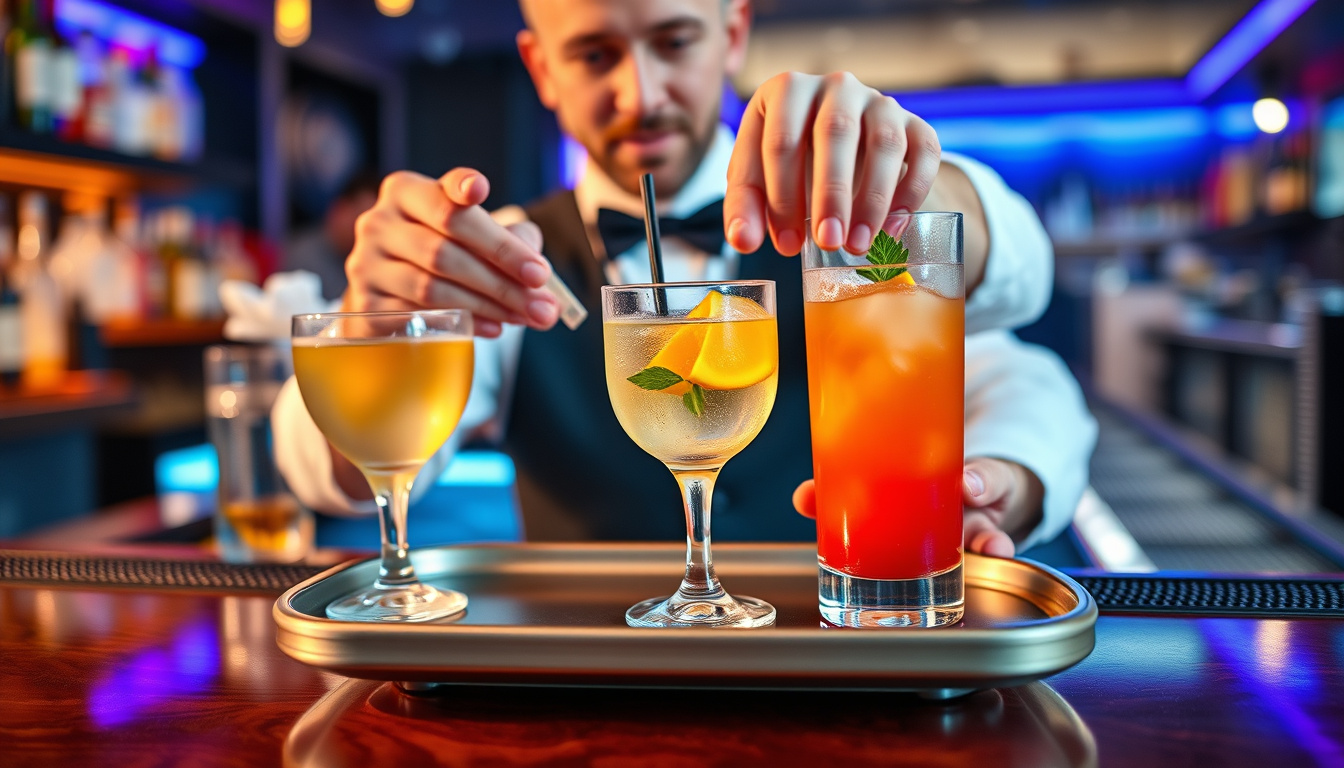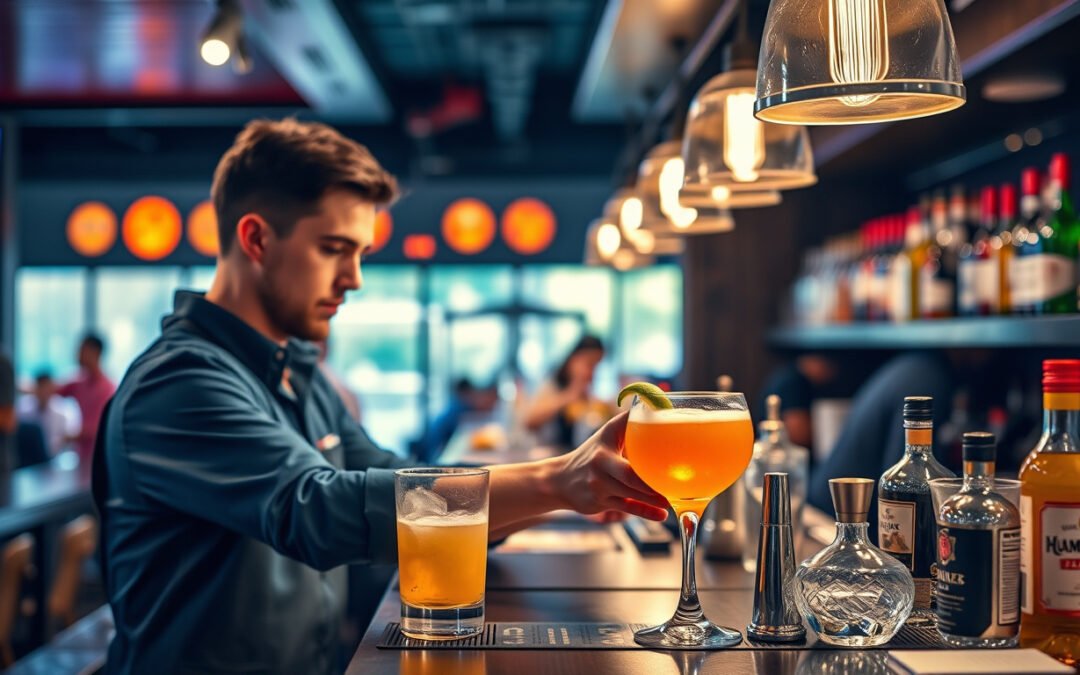Serving alcohol is a big duty. It needs care, skill, and professionalism. A responsible beverage vendor makes the place safe and follows the law. If you run a bar, restaurant, or event space, you must use safe practices. This article shows clear steps every vendor can use to serve alcohol safely.
Understanding the Role of a Responsible Beverage Vendor
A responsible beverage vendor does more than sell drinks. They act as gatekeepers. They stop underage drinking, control intoxication, and reduce harm. They serve alcohol with care, cut risks, and obey the law.
By taking these steps, vendors help make drinking safer. They also protect their business from fines and license loss. It is very important for us all to know how to serve alcohol well.
Key Responsibilities of a Responsible Beverage Vendor
To serve alcohol safely, vendors must use best practices. Below are clear duties that help keep service safe:
1. Verify Age Rigorously
Check IDs to stop underage drinking. Train staff to know real government IDs. Deny service when unsure. Use age-check tools but trust the staff’s watchful eye.
2. Train Staff Thoroughly
Give strong training to bartenders, servers, and managers. This training shows legal rules, signs of drunkenness, and polite ways to refuse service. It also builds skills for tough moments.
3. Monitor Patron Consumption
Watch patrons carefully. Look for early signs of intoxication. Offer water, food, or a ride when needed. This early help can stop problems.
4. Promote Safe Transportation Options
Suggest that patrons use a designated driver, taxi, or ride-sharing service. Some places even give bonuses or work with transport services to help patrons go home safely.
5. Adhere to Legal and Municipal Regulations
Keep up with local liquor laws. Know service hours and occupancy limits. Following these laws stops fines and protects the business’s name.
Essential Practices for Safe Alcohol Service
Using a set plan helps vendors keep safety high. Here are practices that build a safe space for drinking:
Comprehensive Staff Training Programs
- Hold regular training sessions that cover:
- Legal rules and penalties.
- How to spot fake IDs.
- Signs of intoxication.
- Conflict handling and de-escalation.
- Use role-play to build staff confidence in saying no.
Implementing Strict Age Verification Policies
- Ask for a valid photo ID for everyone under 30.
- Use scanning tools when possible.
- Keep records of times service was refused.
Setting and Enforcing Limits on Alcohol Service
- Set strict limits on drinks per hour or per person.
- Show a menu that includes non-alcoholic drinks.
- Give a "last call" warning before closing.
Creating a Safe Physical Environment
- Arrange the space to avoid crowding. Keep exit routes clear.
- Use good lighting to see patrons clearly.
- Train staff to spot and stop scuffles early.
Providing Food with Alcohol Service
- Encourage or require food with drinks.
- Pair food with drinks to slow alcohol absorption.
Encouraging Responsible Drinking Through Communication
- Show posters or table tents that promote moderation.
- Share simple facts about alcohol effects.
- Train staff to talk about safe drinking habits.
Promoting Transportation Alternatives
- Work with designated driver programs or ride-share companies.
- Offer a free or discounted non-alcoholic drink for drivers.
- Give simple travel information to help patrons get home.
Benefits of Responsible Beverage Vendor Practices
Using safe practices brings many benefits:
- Enhanced Safety: Fewer accidents and fights.
- Reputation Management: Builds trust and loyalty.
- Legal Compliance: Stops fines and license loss.
- Community Health: Lowers alcohol abuse and its harms.
Example: How Businesses Benefit from Responsible Beverage Vendor Certification
Some regions offer programs that train vendors and give certificates. Certified staff report fewer legal problems and a better customer experience. Research shows that training reduces drunk driving and injuries (source).

Checklist: Essential Practices for a Responsible Beverage Vendor
- Verify age for every sale.
- Train staff regularly on safe service.
- Watch how much each customer drinks.
- Limit drinks per customer or time.
- Serve food with alcohol.
- Help patrons get home safely.
- Update yourself on local alcohol laws.
- Build a safe, well-lit space.
- Use signs to promote safe drinking.
- Record any incidents and refusals.
Frequently Asked Questions About Responsible Beverage Vendor Practices
What training is required to become a responsible beverage vendor?
Training rules differ by place. Usually, you learn to check age, spot drunkenness, refuse service politely, and know the law. Many areas have certification programs.
How does a responsible beverage vendor prevent serving intoxicated customers?
Staff learn to see signs like slurred speech or shaky movements. They know to limit drinks, serve water, or call for a ride to stop overservice.
Why is it important for a beverage vendor to encourage safe transportation?
Safe transport stops drunk driving. It protects patrons, the community, and your business from legal and public issues.
Safe alcohol service grows from care and skill. Being a responsible beverage vendor means you put your patrons’ safety first and follow the law. By using these clear practices, you help your community and boost your business with professionalism and care.


